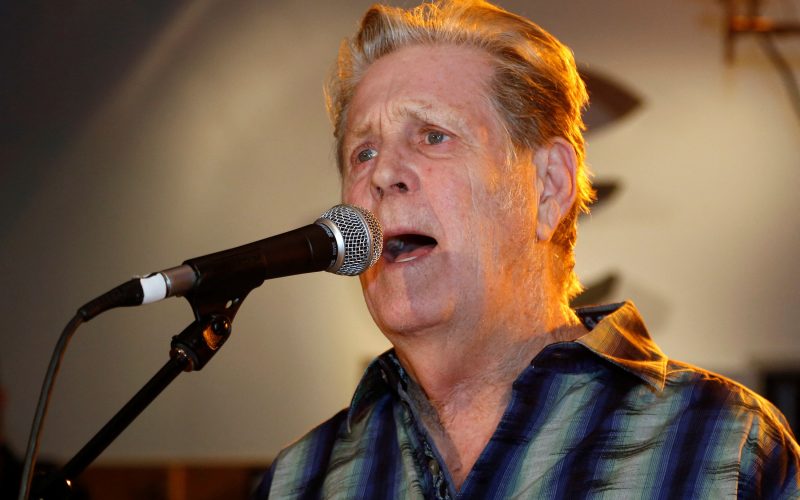About the Author
Hey there, music aficionados! Sarah here, your friendly neighborhood music journalist. Having spent years chronicling the stories behind classic rock’s most influential figures, today’s topic hits particularly close to home. We’ll explore the recent news of Brian Wilson’s conservatorship due to mental decline, honoring his musical legacy while acknowledging the challenges he faces.
A Symphony Interrupted: Understanding Brian Wilson’s Conservatorship
The news of Brian Wilson, the musical mastermind behind the Beach Boys, being placed under a conservatorship due to declining mental health has resonated deeply with music fans and the elder care community alike. Let’s unpack this situation, examining the purpose of conservatorship and the delicate balance it requires.
Key Details:
| Aspect | Details |
|---|---|
| Reason for Conservatorship | Mental decline related to a neurocognitive disorder |
| Conservatorship Type | Conservatorship of the person (to manage personal care and well-being) |
| Estate conservatorship not sought (assets managed through a trust) |
Beyond Surf and Sun: Brian Wilson’s Enduring Musical Legacy
Before diving into legalities, let’s celebrate Brian Wilson’s immense contribution to the world of music. As a co-founder of the Beach Boys, Wilson’s songwriting and production genius birthed timeless classics like “Surfin’ U.S.A.” and “God Only Knows.” He pushed boundaries, incorporating complex harmonies and introspective lyrics into what was initially perceived as “beach bum music.” Wilson’s influence on rock and pop music remains undeniable, inspiring generations of artists.

The Fragile Landscape of Mental Health in the Music Industry
Brian Wilson’s story isn’t just about legal matters. It serves as a stark reminder of the vulnerability artists face, particularly when grappling with mental health issues. Decades of touring, creative pressures, and the ever-present spotlight can take a toll. The music industry, often romanticized for its glamour, can be a challenging space for mental well-being. Wilson’s story necessitates a conversation about providing support systems for artists throughout their careers, not just at their peak.
Conservatorship: A Tool with Two Sides
A conservatorship is a legal process where a court appoints a conservator to manage the financial and/or personal care of an individual deemed unable to do so themselves. While often applied in cases of financial mismanagement or addiction, conservatorship for mental decline can be a complex issue. On one hand, it ensures well-being and protects vulnerable individuals from exploitation. On the other hand, it raises concerns about autonomy and potential abuse of power by the conservator.
Conservatorship and Elder Care: Understanding the Intersection
News of Brian Wilson’s conservatorship resonates with those navigating the often-uncertain waters of elder care. As loved ones age, their mental and physical capacities may decline. Understanding conservatorship as a potential option, while also exploring alternative caregiving methods like assisted living or home care, is crucial. Consulting with legal professionals and healthcare experts can help families make informed decisions that prioritize the well-being of their loved one.
Beyond the Headlines: Navigating Compassion in a Difficult Situation
While the news of Brian Wilson’s conservatorship is a cause for concern, it also presents an opportunity for empathy and support. Speculation about his personal life offers little value. Instead, let’s focus on the broader conversation about mental health awareness and the importance of providing dignified care for aging individuals.

Resources for Support and Understanding:
- The National Alliance on Mental Illness (NAMI): NAMI provides resources, support groups, and educational materials for individuals and families facing mental health challenges.
- The National Center on Elder Abuse (NCEA): The NCEA offers a national resource center dedicated to preventing, investigating, and prosecuting elder abuse, neglect, and exploitation.
- The American Bar Association Commission on Law and Aging: The ABA Commission provides resources and information on legal issues related to aging, including conservatorship.
A Note on Hope and Moving Forward
Brian Wilson’s musical genius has brought joy to countless people. Though his story highlights the challenges he faces, it also serves as a springboard for a more comprehensive conversation about mental health, elder care, and the delicate balance between support and autonomy. Here are some key takeaways:
- Early Intervention and Support: Mental health challenges can affect anyone, regardless of profession or background. Early intervention and access to mental health resources are crucial for artists and individuals in all walks of life.
- Open Communication and Planning: Open communication about future care preferences is essential for families as loved ones age. Discussing potential scenarios like conservatorship beforehand allows for informed decisions that prioritize an individual’s well-being.
- Respecting Individuality: While conservatorship can be a necessary safeguard, it’s vital to preserve an individual’s autonomy whenever possible. Tailoring care plans to individual needs and preferences ensures a dignified and fulfilling life for aging loved ones.
The Final Note: A Community of Support
Brian Wilson’s story is a poignant reminder that even legends face challenges. However, it doesn’t have to be a solitary journey. By fostering open dialogue about mental health, creating support systems for artists, and providing compassionate care for our aging population, we can create a more empathetic and supportive community.
Let’s keep the conversation going! Share your thoughts and well wishes for Brian Wilson in the comments below. Have you or a loved one faced similar situations? What resources have you found helpful? By sharing our experiences and knowledge, we can navigate these sensitive topics with greater understanding and compassion.










